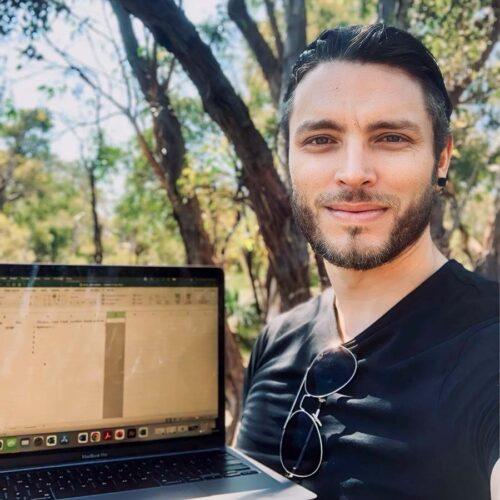-
2024–2026: National Environmental Science Program (NESP) Resilient Landscapes – Restoration by Design Phase 2. Breed, Gallagher, Adams, Dean, Laurance, Robinson. Phase 2 of this project will (a) quantify nested regional and local impacts on ecosystem restoration of projects across Australia from within fragmented landscapes using regional studies with on–ground data; (b) make recommendations for improvements to current practices, drawing upon existing and emerging restoration and biodiversity monitoring methods and analyses.
-
2023–2024: National Environmental Science Program (NESP) Resilient Landscapes – Restoration by Design Phase 1. Breed, Gallagher, Adams, Robinson. To maximise biodiversity and socioeconomic gains, it is essential to evaluate the outcomes and impacts of existing restoration programs and improve them in the future. Approaches include considering the changes in values due to the program (‘outcomes’) and evaluating the impact of a program relative to no intervention. Impact evaluations can also help answer program-design questions such as which, among several alternatives, is the most effective restoration approach. To address this knowledge need, this project (a) reviewed what is known about program impact evaluations and identified methods and data types used within programs, with a particular emphasis on restoration; (b) engaged with key stakeholders in government and industry to co-design a restoration-evaluation framework and data-sharing model.
-
2023–2026: CRC TiME: Evidence for the effectiveness of climate-adapted seed sourcing strategies for revegetation success and transition in a changing climate. This project is (a) embedding experimental infrastructure in postmining revegetation plantings, for monitoring short and long-term revegetation success; (b) providing data and conclusions on the relative performance of business-as-usual vs climate–adapted seed-sourcing strategies for early vegetation establishment; (c) demonstrating an experimental design that can potentially be taken up across a wider range of mine sites and other revegetation sites in Australia and around the world, to build a larger network of sites testing this concept for different species and environments. Dr Robinson is co-leading the SA site experiments and soil genomics for the whole project.
-
2023-ongoing: The Aerobiome Innovation and Research Hub (The AIR Hub). In 2023, Dr Robinson founded the Aerobiome Innovation and Research Hub (The AIR Hub; www.aerobiome.org), which aims to research and safeguard the beneficial biological components of the air. The AIR Hub runs workshops and engagement activities, facilitates collaborations to improve ecosystem health policy and aims to improve aerobiome science communication and innovation.
-
2019-ongoing. Urban microbiome research. Through his collaborations with Centric Lab, Dr Robinson’s research into Microbiome-Inspired Green Infrastructure (MIGI) has informedurban landscape planning and practice. One output was a publication setting out practical overlays to the Royal Institute of British Architects (RIBA) Plan of Works, explicitly considering the role of the microbiome in the management of urban green infrastructure. A London-based urban planning consultancy has integrated the MIGI guidelines and corresponding draft updates to the UK’s National Planning and Policy Framework (NPPF) into a recent urban development master plan. A large multinational urban developer (Lendlease; based in Australia) has also integrated MIGI principles into their design projects. Dr Robinson’s affiliation with the Healthy Urban Microbiome Initiative (HUMI) contributed to an MOU being signed with the Secretariat of the UN Convention of Biological Diversity (CBD), which agreed to work in partnership with HUMI on the linkages between biodiversity and health via the microbiome pathway.
-
2017-2021: Improving Wellbeing through Urban Nature (IWUN). Dr Robinson contributed to this Natural Environment Research Council (NERC)-funded project at the University of Sheffield, which has informed policy and practice in urban ecosystems.
